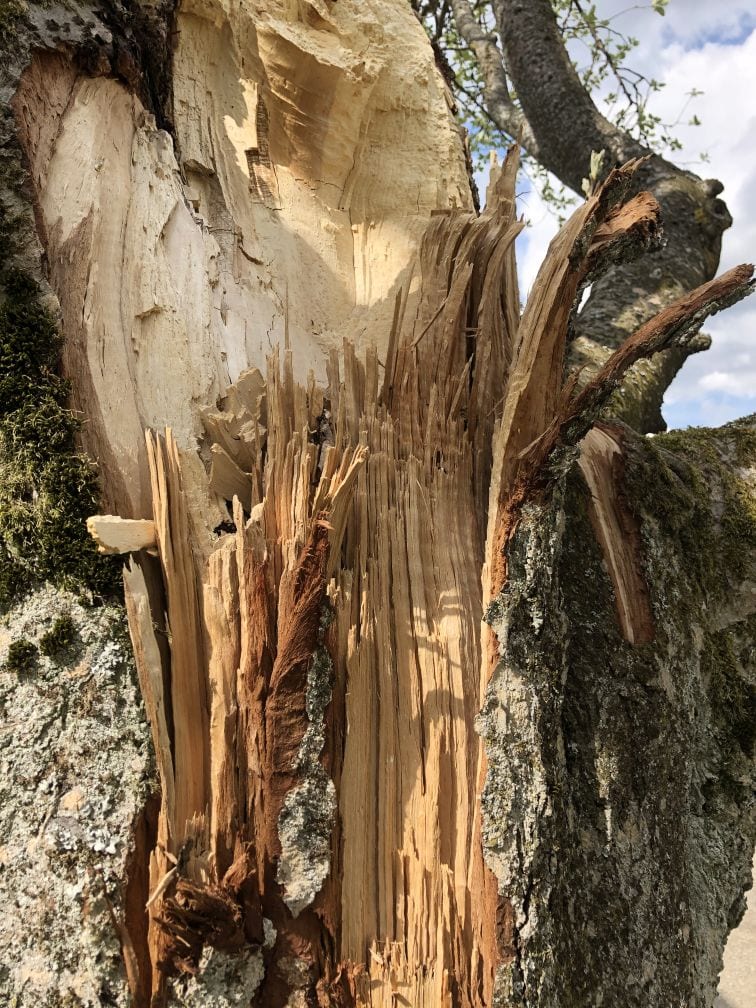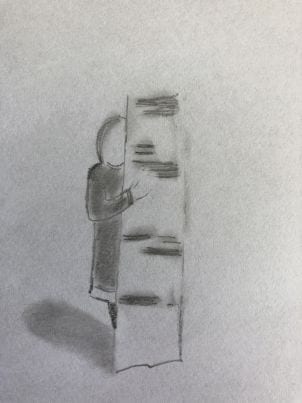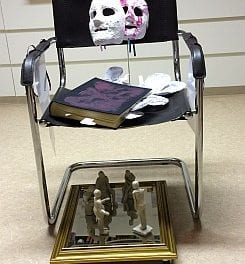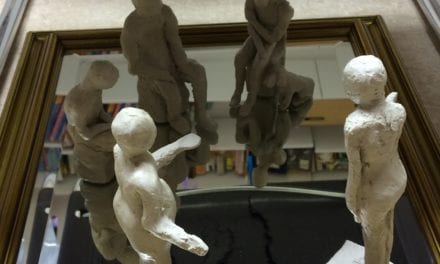
The enemy in your body
Most of the time, we perceive pain as something bad. It torments us.
Wish
Have you ever wished you had a different body?
Trapped
Do you even feel trapped in your body?
Strange
Or do you already feel that the body that envelopes you is not yours?
Enemy
Do you consider your body your enemy?
An enemy by whom you feel persecuted and tormented.
An enemy you want to fight or flee from.
Why do you feel this way?
Because it causes you pain and has done so for so long....
Then it's time for a change of perspective.
A warning system
Pain is a sophisticated warning system that tells us: Something is wrong here, take care of it! The pain memory is intended as an early warning system. You are probably familiar with the example of the hot stove? It hurts when you touch it. Your brain stores the memory of the pain and wants to prevent you from touching the hot ring again.
A marvel
Our body is a true marvel. Many complex processes keep it running. This works when everything interlocks as it should. And when the body gets what it needs. If something goes wrong, it does everything it can to find the fault, eliminate its cause and put everything back in order. It wants to support us.
A friend
How about we think of our body as a friend? I beg your pardon? Yes that sounds absurd at first - I know, because it causes us pain. Sometimes you want to jump off the cliff to escape your pain and here I am advocating for it? You probably think I'm nuts!
Trust me
In another post I get upset about the saying, "Pain is weakness leaving the body." Pain is not weakness Now I claim pain is good and your body is your buddy. Please indulge me a little longer.
The button leads to the website of the Pain Association UK offering many different sources of information.

FAQ
Frequently asked question.
What about chronic pain?
You could probably understand and accept that acute pain is a warning signal and does not want to harm us. What about chronic pain? What is the purpose of it?
Do you remember when you were a teenager and out with friends in the evening? Did your mother or father sit in the living room, or did they come out of the bedroom to say goodnight to you? They would stay up until we got home. They wanted to make sure everything was OK.
Today we may be the parents and overprotective - hypervigilant. What does that mean when we apply it to our bodies?
Our nervous system is in a sense overprotective, it doesn't just give a warning (acute pain). It wants us to really listen. It signals pain - getting worse. Its intention is that we do something about the adverse circumstances.
So this is chronic pain: figuratively speaking, our nervous system sits in the living room and waits restlessly in the armchair until we come home and then the warning comes. It interprets something that shouldn't be bad, as possible imminent danger and therefore signals pain. The result is not good for us, but the intention is well meant.
How does a cold really work?
We are currently experiencing a cold spell in southern Germany. That would be exactly the weather situation to catch a cold. That's what we think. So how come we are catching far fewer colds at the moment? Colds don't have so much to do with cold and bad weather. (They have to do with viruses and wearing masks, but that's another story).
Jennifer Ackerman is a writer who has won many awards. She has been writing about science and nature topics for The New York Times Magazine, Scientific American and National Geographic for over 25 years. She found that all the typical cold symptoms - sniffles, hoarseness, aching limbs.... show up more when people have a well-functioning immune system.
This sounds paradoxical at first. It means that when someone has a noticeably severe infection with a cold, cough and sore throat, their immune system is doing a good job.
We learned in detail last year how viruses get into the body. Once inside, they dock onto human cells and pretend to be useful to us. Once they have taken up residence, the viruses drop their mask and the immune system gears up for a counterattack. It tries to expel the alien with a cold and a cough.
Next time you have a bad cold, be happy! Yes, of course - the whole thing is anything but pleasant. But you can be sure your immune system is doing its job well. That's what Jennifer Ackerman says.
How does our body work?
Our body functions like a network that connects the organs, muscles, bones, joints and tendons. Therefore, disturbances in the system, such as injuries that cause us to not be able to move well, do not just affect one part of the body. Often we go to the physiotherapist because we have pain in one place and learn that the cause of the pain is elsewhere in the body.
When does it all start?
Some time ago, I attended a lecture and learned that some physiotherapists take a very precise and detailed medical history at the beginning of therapy. Gender, age and operations are quickly listed. Then it is about experienced traumas, psychological stresses and the biography from birth until today. It can play a role how our birth was.
The purpose of this time-consuming exercise is to get an individual and comprehensive picture of the patient. At the first disturbance, the body starts to compensate and from one event to another, it continues to compensate.
So it can be like a criminal case to trace the origin of the pain. If you have been through many difficult situations, there is a kind of map of the pain or disturbances in your body. In this search process, it becomes clear that the body is doing amazing work and is trying hard to balance.
Perhaps we were not pleased when our parents stayed up at night waiting for us. We would rush past them in a huff. In the same way, we tend to want to run away from pain.
Is there a reset button?
Is it possible to reset the pain situation? An important step is to learn how pain works, what it wants. Studies have shown that learning about pain can be pain-relieving. In the best case, the new knowledge leads to a change of perspective.
When we are told that we have a disease and we don't know anything about it, we worry about what could be behind it. When we get educated or informed about it, the symptoms are not gone, but we understand what is happening.
Knowledge does not eliminate pain. Unfortunately! But if we understand better what is going on inside us, we can accept the situation better. Through acceptance, we are more open to finding ways to live with the pain. The symptoms are no longer so threatening and we can experience relief. This path, which is not without its stumbling blocks, is easier to walk if we acknowledge our body's achievements and no longer see it as an enemy.
My point is not to trivialise pain - my pain, your pain - or not to take it seriously. No. Pain is to be taken seriously. It is about working with the body and not against it.
You long to be recognised and believed by those around you and so does our body.
A well researched explanation of how the body can create chronic pain via learned nerve pathways in the brain delivered by Georgie Oldfield, a physiotherapist.
What way have you found to deal with your pain?
Sources:
Louw, A. L., Diener, I. D., Butler, D. S. B. & Puentedura, E. J. P. (2011, December). The effect of neuroscience education on pain, disability, anxiety, and stress in chronic musculoskeletal pain. Retrieved 20 March 2021, from https://pubmed.ncbi.nlm.nih.gov/22133255/
Moseley, G. L. M., Nicholas, M. K. N. & Hodges, P. W. H. (2004, October). A randomized controlled trial of intensive neurophysiology education in chronic low back pain. Retrieved March 20, 2021, from https://pubmed.ncbi.nlm.nih.gov/15322439/
Werkmeister, P. W. (n.d.). The system. Retrieved 20 March 2021, from https://www.werkmeister-system.de/das-system










